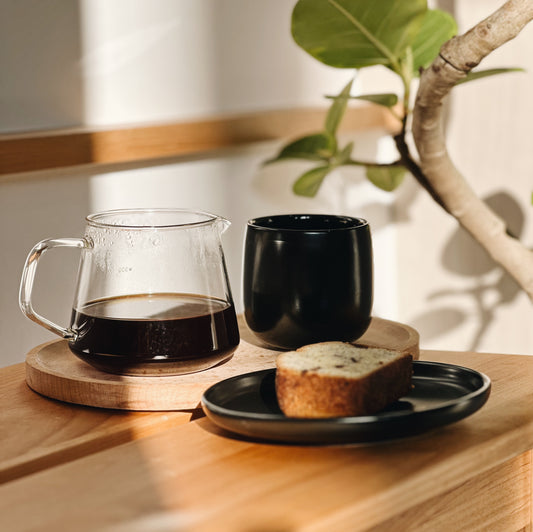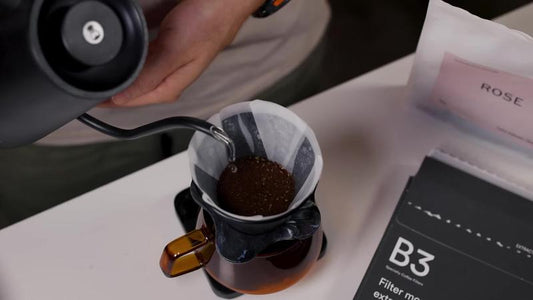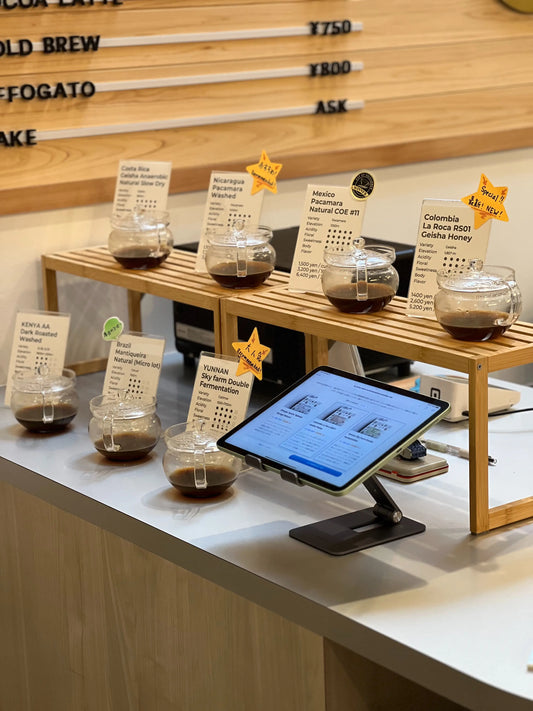
In the world of artisan coffee roasting, understanding the nuances that contribute to the perfect cup is what sets apart the best coffee shops in Japan, like Shinjuku Coffee Roaster, located in the heart of Tokyo. One crucial yet often overlooked factor is coffee bean density—a key player in the coffee's final flavor profile.
The Science of Coffee Bean Density
Coffee bean density is a reflection of how tightly packed the cells within a bean are, which significantly impacts how the bean roasts and, ultimately, tastes. At Shinjuku Coffee Roaster, we delve into the density of our beans to ensure every roast we conduct is tailored to bring out the best in each bean.
High Density: The Hallmark of Elevation
High-density beans are generally produced at higher altitudes—think regions soaring above 1,200 meters (approximately 4,000 feet). The cooler climates and slower cherry maturation rates in these elevations lead to a denser bean structure.
Example of High Density: Consider a bean grown in the Ethiopian Highlands, at an altitude of around 1,800 meters. This bean would likely exhibit a higher density due to its slow growth in cool temperatures, resulting in a complex flavor potential that includes bright acidity and floral notes. For a roaster, these high-density beans require precise heat application to unlock their intricate flavors without scorching the bean.
Low Density: The Warmth of Lower Lands
Conversely, low-density beans are often found in warmer, lower-altitude regions. These beans grow more quickly and are less compact, affecting how they absorb heat during roasting.
Example of Low Density: A bean from a lower elevation area, such as parts of Brazil where elevations can be below 1,000 meters, typically showcases a lower density. These beans might present a more straightforward flavor profile with nutty and chocolate notes, requiring a careful roasting approach to enhance their natural sweetness without underdevelopment.
Elevating Coffee Roasting with Bean Density Insights
Our roasting philosophy at Shinjuku Coffee Roaster incorporates a deep understanding of bean density. By distinguishing between the high and low density of our beans, we craft roast profiles that accentuate each bean's unique characteristics, ensuring our position as one of the best coffee shops in Tokyo.
The Impact of Density on Roasting
Roasting high-density beans from the Ethiopian Highlands demands a gradual ramp-up in temperature to ensure the dense structure is thoroughly warmed, allowing for a more uniform development of sugars and acids. On the other hand, Brazilian low-density beans might be roasted with a slightly different approach, possibly requiring less intense heat initially to avoid exterior scorching while still ensuring full flavor development.
A Commitment to Quality and Innovation
At Shinjuku Coffee Roaster, our journey doesn’t stop at understanding bean density. We continuously explore and innovate our roasting techniques to adapt to the unique characteristics of each bean we source. This dedication to quality and precision in our roasting process is what makes us not just a coffee shop but a destination for those in search of the best coffee in Tokyo and a beacon for coffee lovers across Japan.
Join Us on Our Coffee Journey
Experience the difference that meticulously roasted coffee makes. Visit Shinjuku Coffee Roaster and discover why we're celebrated as one of the best coffee shops in Tokyo. Every cup we serve is a testament to our passion for coffee, our commitment to innovation, and our dedication to bringing you the perfect roast.





